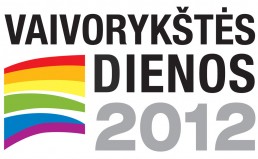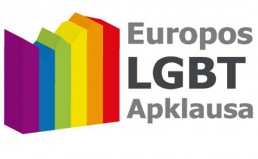The European Parliament on May 24th adopted a resolution to condemn homophobic laws and discrimination in Europe. The resolution was adopted with 430 votes for and 105 against, and was co-authored by all five mainstream political groups: centre-right EPP, S&D, ALDE, Greens/EFA and GUE/NGL. Two Lithuanian MEPs, Leonidas Donskis and Laima Andrikienė, voted in favour. According
News
With a large majority (430 for, 105 against), the European Parliament has adopted a resolution to condemn homophobic laws and discrimination in Europe. For the first time since the last European elections, all five mainstream political groups co-authored the text, including centre-right EPP, S&D, ALDE, Greens/EFA andGUE/NGL. In today’s resolution, the European Parliament “strongly condemns any discrimination on the basis of
Amnesty International has published its annual human rights report, in which it criticizes Lithuania for discrimination against lesbian, gay, bisexual and transgender people. As a positive development the report mentions an amendment to the Law on Provision of Information to the Public that came into force in June 2011, reversing a previous amendment and banning
Lithuanians are intolerant of homosexuals, but only 10% say they are acquainted with gays and lesbians, and the same amount suspect knowing someone gay or lesbian. However, if they learned that their own child was gay, about 40% would strive to understand him or her. Only 0.9% would disown their child because of his or
Disillusioned with the actions of prosecutors, the leader of the Lithuanian Gay League Vladimir Simonko declared in an interview with Lietuvos Rytas that if there is no adequate reaction from law enforcement authorities to internet threats to shoot, destroy and crush certain groups of people, these short comments might soon turn into violent actions. These
International Day Against Homophobia and Transphobia (IDAHO) was celebrated in Lithuania by Rainbow Days, organised by the Lithuanian Gay League (LGL). Rainbow Days were opened on Wednesday 16 May at a press conference held in the Parliament. The conference introduced LGL’s new publication “Changing Faces – First March for LGBT Equality in Lithuania”. In addition
In connection with Rainbow Days 2012, Lithuanian Gay League introduced its new publication “Changing Faces”. The book focuses on Baltic Pride 2010, the first Pride to be held in Lithuania, presenting articles on and photographs from the event. The book on the one hand looks at the Lithuanian media landscape from the perspective of reporting
On Wednesday May 16th, the eve of the International Day against Hompophobia and Transphobia, a press conference in Seimas (Lithuanian Parliament) introduced the book “Changing Faces – First March for LGBT Equality in Lithuania” and gave the media a chance to discuss LGBT rights in Lithuania. Petras Gražulis, homophobic Member of Parliament, also used this

International Day Against Homophobia and Transphobia (IDAHO) will be marked in Lithuania by a week-long celebration of Rainbow Days, organised by the Lithuanian Gay League (LGL). Rainbow Days will be opened at a press conference at Seimas on 16 May hosted by Member of Parliament Marija Aušrinė Pavilionienė, with speakers including Ambassador of the Netherlands
A Lithuanian court has found Petras Gražulis and Kazimieras Uoka, the two members of the Lithuanian Parliament (Seimas) who resisted police officers at the Baltic Pride march in Vilnius two years ago, guilty of an administrative violation. A fine of 200 litas (60 euros), the maximum penalty for this violation, was imposed on each MP.
In a recent interview given to Lithuanian news portal 15min.lt, United States Ambassador to Lithuania Anne E. Derse discussed among other things LGBT rights in the US and in Lithuania. She talked about the current US administration’s commitment to LGBT rights, stressing that it is a core part of the US foreign policy to promote

Today, the first ever EU-wide (including Croatia) online LGBT Survey is launched. ILGA-Europe encourages all individuals who identify as lesbian, gay, bisexual or trans to take part in this important Survey. This is a historical opportunity to gather more details of the lived experiences, to get a clearer picture of the discrimination LGBT people face
